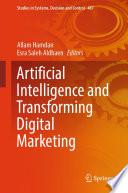
Digitalization in Halal Management
The book emphasizes the digitalization process in halal management of products and industries, which relate to the comparisons and cases in many countries viewed from an Islamic perspective. It needs a new view of using information technology to achieve wider coverage of promoting halal products as well as to develop the halal industries. A global perspective that consists of experiences from Muslim majority and minority countries will be presented in this book. This topic is also associated with the concepts on Islamic business and management. Islamic business not only focuses on finance/banking, but beyond that Islam teaches all people to do Shariah-compliant transactions or business. The book gives solutions to halal industry through digitalization. Islam has many solutions to be offered, and thus, it is important to reveal and discuss the Islamic way of managing business, including halal management. The book also discusses the halal products and its certifications. This book is intended for stakeholders of different industries, from environmental to food, in the need of digital tools and IT infrastructure.
- ISBN 13 : 9819951461
- ISBN 10 : 9789819951468
- Judul : Digitalization in Halal Management
- Pengarang : Ahmad Rafiki,
- Kategori : Technology & Engineering
- Penerbit : Springer Nature
- Bahasa : en
- Tahun : 2023
- Halaman : 284
- Google Book : https://play.google.com/store/books/details?id=UWHjEAAAQBAJ&source=gbs_api
-
Ketersediaan :
... Digital Marketing and Halal Industry, Jour- nal Agroindustri Halal, and Indonesia Journal of Halal. These four journals and another eight journals are listed under Garba Rujukan Digital (Garuda: Digital Reference Platform) under the ...









